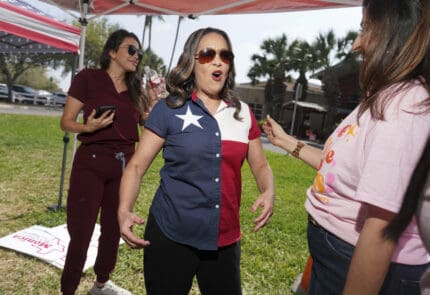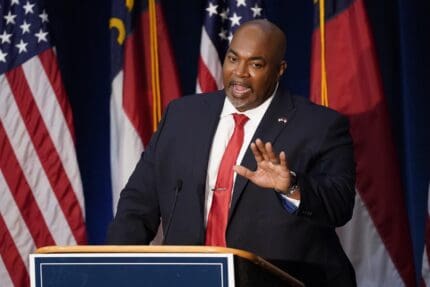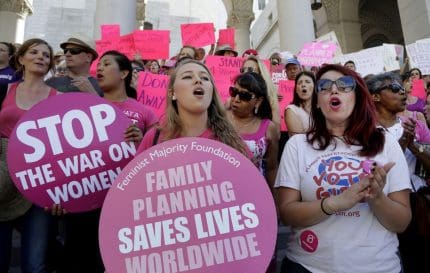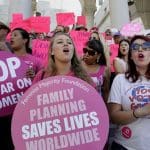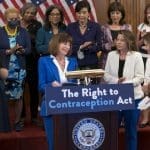The coronavirus crisis reveals just how deep inequality in US runs
This past week I did something I never thought I’d do: conducted a funeral for a member of my congregation on Zoom. Like many people across the country, the devastation of the COVID-19 pandemic has reached our doorsteps at Ebenezer Baptist Church here in Georgia. No one is immune to this tragedy, but we are […]
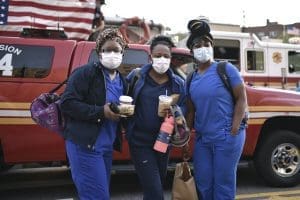
Like many people across the country, the devastation of the COVID-19 pandemic has reached our doorsteps at Ebenezer Baptist Church here in Georgia. No one is immune to this tragedy, but we are all reminded just how deep inequality runs in our country as we see this virus’s outsized impact on historically disadvantaged communities and how ill-prepared we are to address it.
Recent reporting has highlighted that the coronavirus is affecting communities of color and the poor at disproportionately high rates. But that should come as a surprise to no one.
Inequality in economics and health care multiplies in the midst of a crisis. These are tragic consequences that people in Black and brown and rural and poor communities experience every day, compounded and exacerbated by problems like COVID-19.
Let’s be clear: Historic disparities have certainly dealt a bad hand to underserved populations.
It’s no secret that a lack of access to health care and other economic challenges have resulted in a higher incidence of chronic illnesses like heart disease, diabetes, obesity, and stroke — some of the exact preexisting conditions that make individuals more likely to become seriously ill, and ultimately die, from coronavirus.
Citizens in the African American community are not just on the front lines caring for the sick, but are also overwhelmingly represented in essential jobs that barely make minimum wage. Folks like my brother, a truck driver in Savannah, who’s among the last to be seen for care.
The coronavirus may be new, but, sadly, the truths it’s laid bare are ones we’ve known for a long time.
This is also a time to focus on the health care disparities that exist in rural America.
Here in southwest Georgia, they’ve felt the effects of coronavirus in so many ways. Albany is not a place one would think of as a hot spot, and yet this town of about 75,000 has one of the highest rates per capita of infection in America.
And the combination of years of neglect that have caused hospitals to close in rural Georgia at breakneck speed and the refusal of politicians to expand Medicaid, which would have offered health care coverage to those in need, has hampered, if not eliminated, the community’s ability to respond.
A pandemic like this shows mercy toward no one, and communities all across Georgia and America are seeing their citizens infected and their hospitals pushed to the limit.
In most cases we’ve once again seen the human spirit of neighbors looking out for each other, whether that means picking up prescriptions for a senior or someone in need, or by making the conscious decision to socially isolate and stay apart.
So what is the lesson to learn from this?
The time is now to build a health care system that expands affordable access for all, and places care for the most marginalized among us at the center. For when we are threatened with challenges like this, it’s going to take all of us coming together to find a path forward.
Our country is in debt right now to so many working people and health care professionals making incredible sacrifices with few assurances from our government or their employers that their families will be taken care of after this.
We need leaders who will be busy doing everything they can to fight not just this global pandemic, but the disparities in our health care system that exacerbated it.
Our failure to address the nexus of income inequality, health care inequality, and racial inequality has put everyone at risk, but has taken a wrecking ball to African Americans.
I have spent my life fighting in that space. That’s why I have been working on the issue of Medicaid expansion from the pulpit and the streets for so many years and will continue to do so.
Those issues — those core elements of disparity in our society — have intersected in unimaginable, deeply felt ways to hold underserved communities back for generations.
As I’ve continued to lead my congregation during these troubling times, I’m reminded of our values. In times of peril, we should all be focused on getting the most help to the most people and recognize there is not time to get caught up in political games.
The hospital bills are due today, the rent is due tomorrow, and being turned away from a hospital bed because of any barrier to care is inhumane and un-American.
Recommended

Biden campaign launches new ad focused on Affordable Care Act
Former President Trump has said he wants to do away with the popular health care law.
By Kim Lyons, Pennsylvania Capital-Star - May 08, 2024
Ohio doctors fear effects of emergency abortion care case set to go before U.S. Supreme Court
A federal law that allows emergency departments to treat patients without regard to their ability to pay will be under U.S. Supreme Court scrutiny this week, and Ohio doctors are concerned about the case’s local impact on emergency abortion care.
By Susan Tebben, Ohio Capital Journal - April 23, 2024
House GOP votes to end flu, whooping cough vaccine rules for foster and adoptive families
A bill to eliminate flu and whooping cough vaccine requirements for adoptive and foster families caring for babies and medically fragile kids is heading to the governor’s desk.
By Anita Wadhwani, Tennessee Lookout - March 26, 2024









